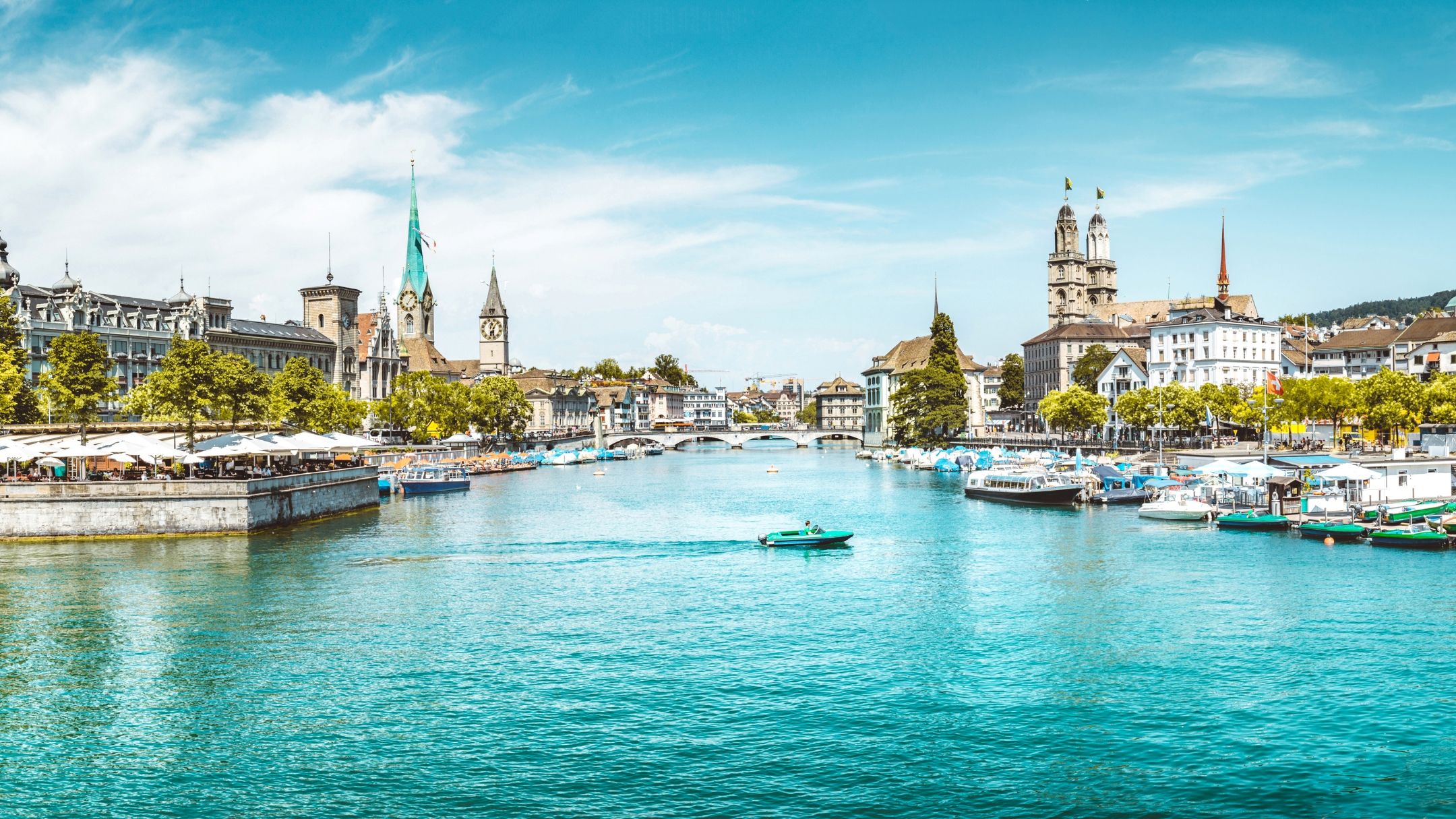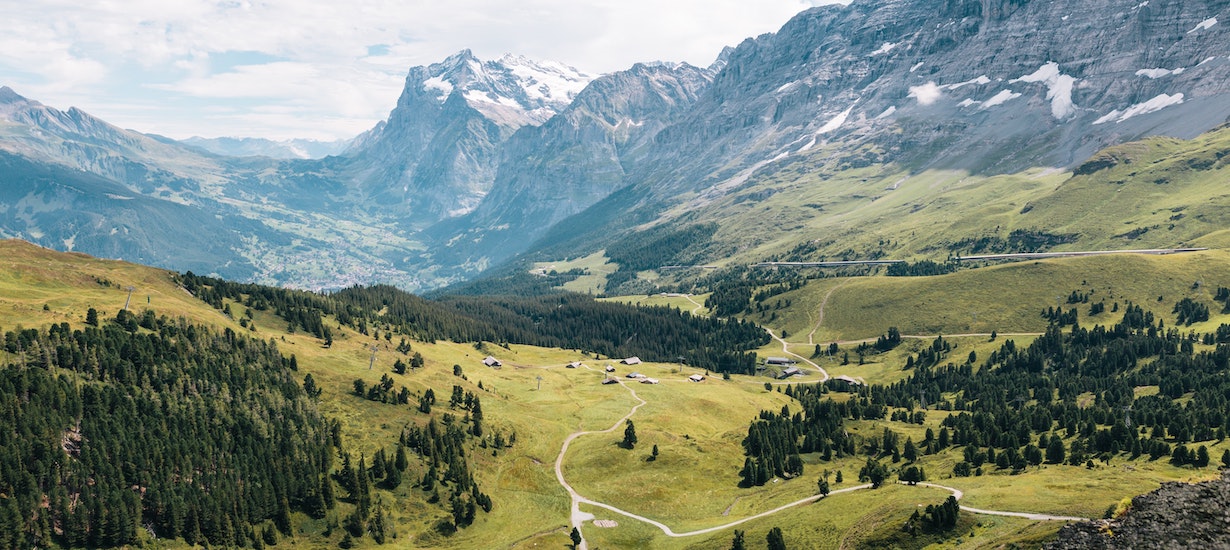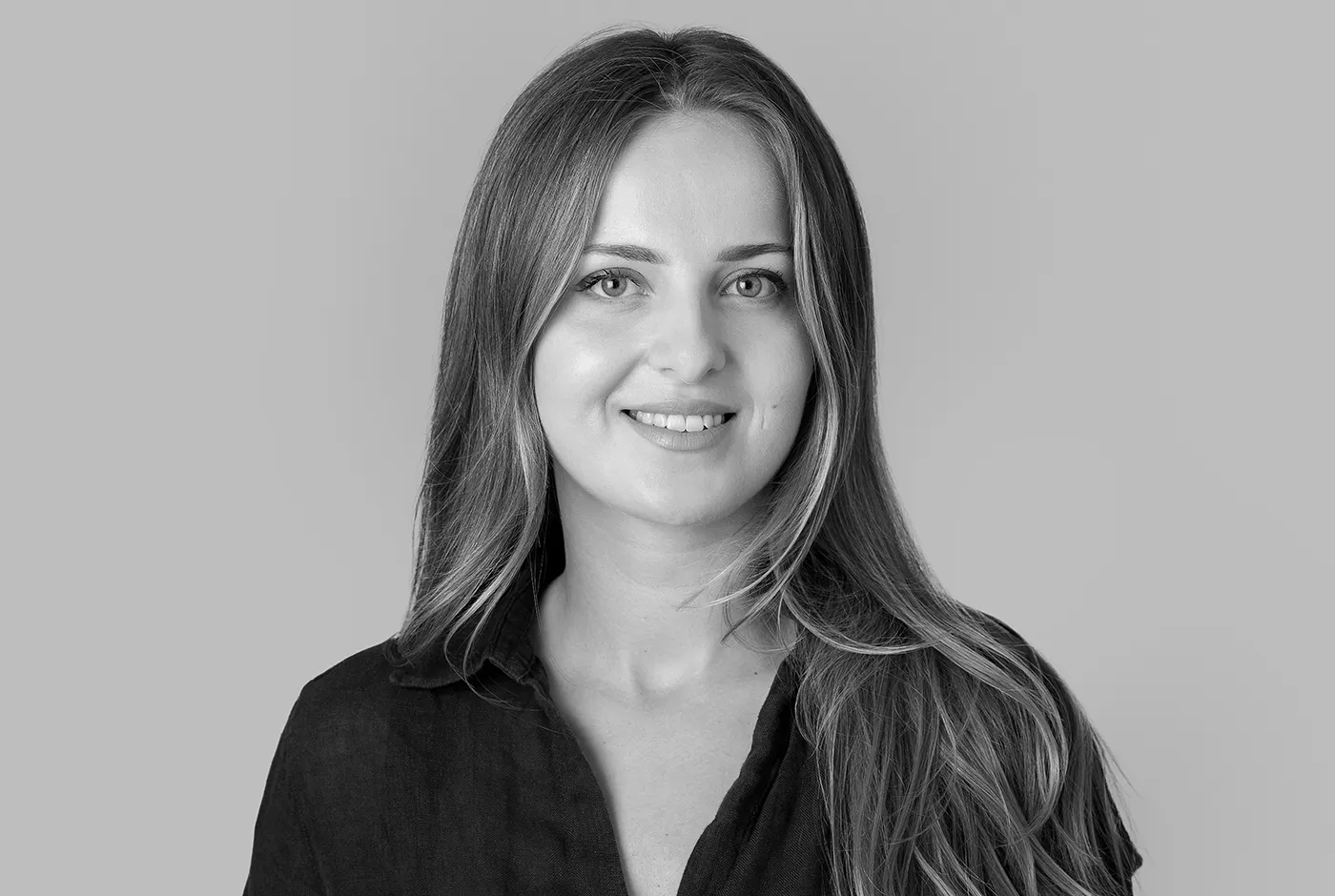Coopers Care
Your job, your journey – we are with you!
What you find here:
Insider knowledge about working and living in Switzerland. As an owner-managed recruiting agency in and from Switzerland, we know the drill.
Working in Switzerland |
Living in Switzerland |

Working in Switzerland
Coopers Guide
Working and living in Switzerland – all info in our Coopers Guide.
Salary, residence permits, social insurance, taxes and more – our guide summarizes everything you need to know. Download it now, free of charge.
CV (Curriculum Vitae)
Your CV is your business card - so make it your trump card. Download our free CV template and follow these professional tips when creating it:
- Maximum 2 pages
- Clear and neat formatting
- List relevant professional experience first
- Explain gaps sensibly
- Tailor your CV to jobs
- No selfies or leisure pictures
Running out of time?
With our cooperation partner ciivii, you can be sure of a tailor-made CV that is not only convincing, but also memorable. The Swiss agency will ensure that your application is prepared professionally and effectively.
Good news: If you are currently in the application process with Coopers, you will receive a 10% discount on your professionally designed CV - simply register here.
Please note: ciivii always prepares application documents in German. If you are interested in English documents, please contact us and we will find a solution together.
Application Photo: With or without?
A photo is not a must – but it makes your application more personal and generates attention. In the end, it is your overall package that counts, with or without a photo.
If you decide on an application photo, pay attention to the following points:
– High quality: Well-lit, sharp and at least 300 dpi
– Neutral background: Calm and without distractions
– Well-groomed appearance: A matte complexion looks more professional
– Appropriate outfit: Let the industry and company style guide you
– Authentic expression: Appear friendly and self-confident
– No-go: Selfies and leisure photos
Interview Tips
YES! Your application was convincing – now it is time for the interview. Whether online, on the phone or in person, your performance is crucial.
To help you score points with confidence, we have put together all the important tips in our interview guide. From preparation and typical questions to the perfect conclusion – you will find everything you need for a successful interview here.
Download now for free:
Letter of Termination
Sometimes, it is time for a change of scenery. With our free termination template, taking the first step is quick and easy.
What's next? Maybe one of our jobs is your next career move. Get in touch for a non-binding exchange.

Living in Switzerland
Do you already live in Switzerland or are you thinking of moving here? Congratulations – you have chosen one of the most beautiful places in the world!
International rankings confirm it time and time again: Switzerland is one of the best countries to live in – thanks to a high level of security, economic stability, and a first-class education and healthcare system. The breathtaking nature is the cherry on top.
Around 9 million people call Switzerland home, a quarter of whom come from abroad. And yes, chocolate, cheese and mountains are part of it – as are luxury watches and cows. But Switzerland has much more to offer.
To help you find your way around quickly, we have put together the most important Swiss customs and useful tips for everyday life.
Letting the cat out of the bag: Swiss customs
Switzerland is the land of watches. If you live here, you'd best wear one, because the Swiss are punctual. It is better to be five minutes early than late.
Formal greetings are "Grüezi" when greeting someone and "Adieu" when saying goodbye.
The greeting between acquaintances and friends is less formal and involves three kisses on the cheek or a hug. Men only share a handshake.
The aperitif (“apéro”) is an integral part of Swiss culture. It is a sociable way to start the evening with a glass of wine, sparkling wine or similar. This is accompanied by snacks or – in the case of the apéro riche – also small dishes.
Important: If a drink is served, you should wait until the host makes a toast before drinking. After a joint Prost, viva or cheers, you may drink.
By the way, we Swiss love to invent new words. Apéro trinken, for example, quickly becomes the verb aperöle.
As a guest, you should not come empty-handed. A bottle of wine, delicatessen, or flowers are good gifts for your host.
Spontaneity is rather untypical for the Swiss, and this also applies to visits. Therefore, it is better to make an appointment instead of showing up unannounced at the door.
Classic mealtimes in Switzerland are a snack around 9 a.m., lunch around 2 p.m., a snack around 4 p.m. and dinner starting from 6 p.m. A meal starts with ä Guetä – bon appetit in Swiss German.
When it comes to shopping, you should keep an eye on the clock. In contrast to most neighboring countries, shops tend to close early. In (big) cities, shop opening hours are somewhat longer, until around 8 p.m.
The general rule is: no shopping on Sundays, shops are closed. Exceptions are railway stations, airports and petrol stations.
Useful information for everyday life
The four official languages spoken in Switzerland are: (Swiss) German (61%), French (23%), Italian (8%) and Romansh (0.5%). The most widely spoken foreign languages are English and Portuguese.
Swiss German is not an official written language and is only used for informal communication – also and especially by young Swiss. Written communication is done in High German. But don't worry, most Swiss people speak English; even in the working world, English is often the company language. This is, for example, the case at Coopers since we are such a diverse bunch of people.
Switzerland is a popular place, and you will notice this when you're looking for a place to live. Demand is high, especially in urban regions such as Basel, Zurich and Geneva, and it is not uncommon for there to be more than 100 applicants for one flat - regardless of the high rental prices.
With our Coopers Care Package, we are happy to support you in your flat search, should you also need a new home along with your new job.
You can start by looking around online. Most flats are advertised online, and you can set up a free search subscription. Popular platforms are:
www.newhome.ch
www.alle-immobilien.ch
www.homegate.ch
www.immostreet.ch
www.immoscout24.ch
How lovely, if you are moving to Switzerland with your whole family – welcome!
We have an excellent education system, which we would like to explain to you in a little more detail.
Day care (Kindertagesstätten / Kita)
There are many facilities that offer daily childcare for young children. This way, both parents can pursue their jobs and be sure that their children are in good hands. Childcare models range from a few hours a day to full-day care. Parents should contact the facility of their choice directly. Due to long waiting lists, registration should be done early (if possible, even during pregnancy).
Since the costs for childcare vary from canton to canton, it is worthwhile to make a comparison depending on where you live.
Swiss education system
Compulsory schooling in Switzerland lasts a total of eleven years.
Kindergarten: years 1 and 2
Primary level: years 3 to 8
Secondary level: years 9 to 11
Compulsory kindergarten: In Switzerland, kindergarten begins for all children who are four years old on the cut-off date of 31 July. Kindergarten - dialect "Chindsgi" - is a part of school education, therefore it is subject to compulsory education and is obligatory. It is free of charge and lasts two years.
Kindergarten takes place from Monday to Friday; the timetable includes morning and afternoon sessions. The aim is to prepare the children for primary school; however, there are no grades yet.
Primary and secondary levels: Primary school usually lasts six years. But in the fifth grade, pupils are graded. The grading scale ranges from 1 to 6; 6 is the best grade, anything below 4 is unsatisfactory.
This is followed by the transition to the first level of secondary school, colloquially known as upper secondary school. There are different models, all of which usually last three years. Compulsory schooling ends after the first level of secondary school.
Now there is the possibility of attending the gymnasiale Oberstufe (second level of secondary school). Pupils can obtain the Matura at so-called Gymnasien and Fachmittelschulen. After obtaining the Matura, students have admission to colleges and universities.
Hardly any other country spends as much money on insurance as Switzerland – for example, you can obtain insurance against too much snow as well as against too little snow during your skiing holidays.
Health and accident insurance are compulsory. Employees are automatically insured against accidents and occupational diseases through their employer. Anyone who works at least eight hours a week for the same employer is also insured against non-occupational accidents.
Liability insurance and household insurance are not mandatory but recommended.
In Switzerland, it is customary to constantly compare the insurance providers and their offers - and to change if necessary. Premiums differ between insurance companies and cantons.
You can make a comparison online here: www.comparis.ch
Important: If you move to Switzerland, you must take care of your health insurance within the first three months. The exception is cross-border commuters; they should contact the competent cantonal health office for exemption from compulsory health insurance.
Switzerland is a relatively small country. It takes about six hours to cross it by car from west to east and about three hours from north to south. And yet the experience factor is high: you hear four different languages (not counting the numerous dialects), travel from urban metropolises to secluded expanses and pass numerous lakes.
Important: You need a toll sticker (CHF 40) to use the motorway.
In emergencies, you can rely on first-class care in Switzerland. The most important emergency numbers at a glance:
112 – The European emergency number for every emergency! You can reach it from foreign SIM cards and from prepaid cards without credit.
In addition, there are:
117 – Police emergency
118 – Fire department
144 – Ambulance
1414 – Rescue service (Rega / Helicopter)
140 – Roadside assistance
1811 – General information
Coopers Newsletter
Once a month, straight to your inbox: 3 jobs, 2 blog posts and 1 more question. Compact and informative.
Register now:
*Required field
The Coopers Family
.webp?m=1741251344)
Shanker Bhanot
Senior Key Account Manager

Stephan Löschke
Principal Consultant

Michael Giaramita
Senior Key Account Manager IT

Herolinda Rafuna
Talent Acquisition Consultant
lakes are in Switzerland
official languages are spoken in Switzerland
bars of chocolate are eaten by Swiss every year
mountain peaks in Switzerland are higher than 4000 meters


_1.svg)